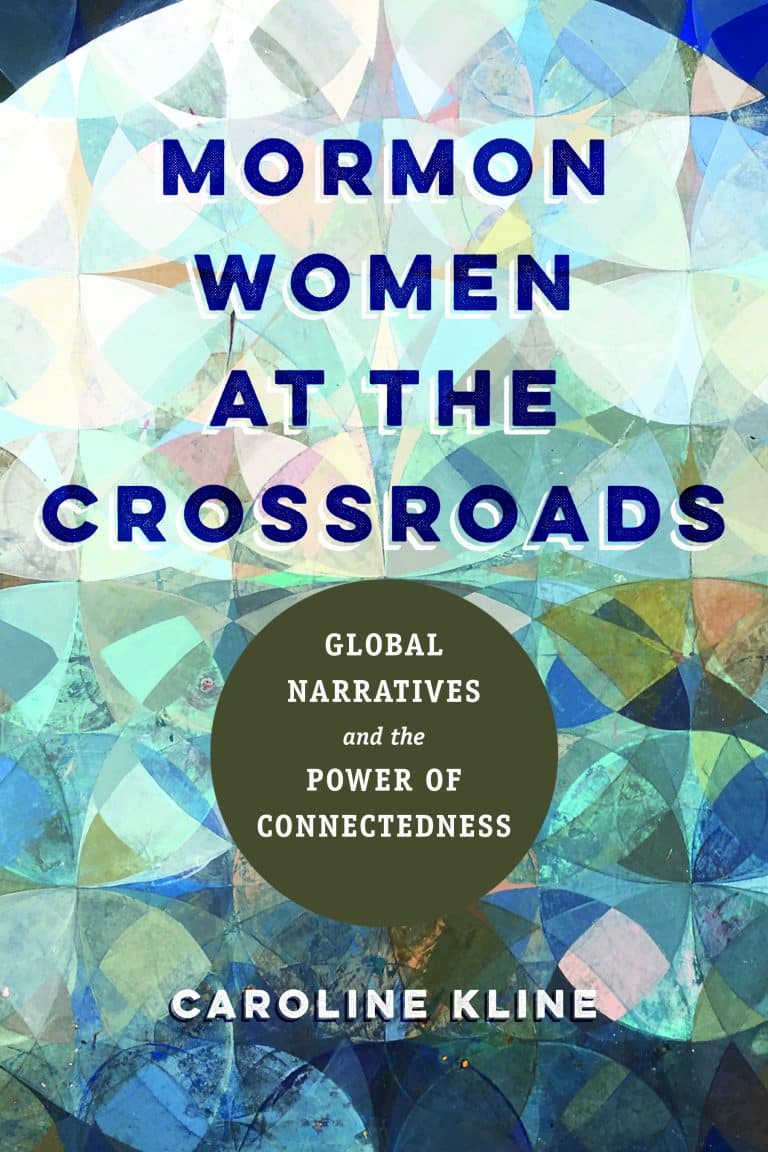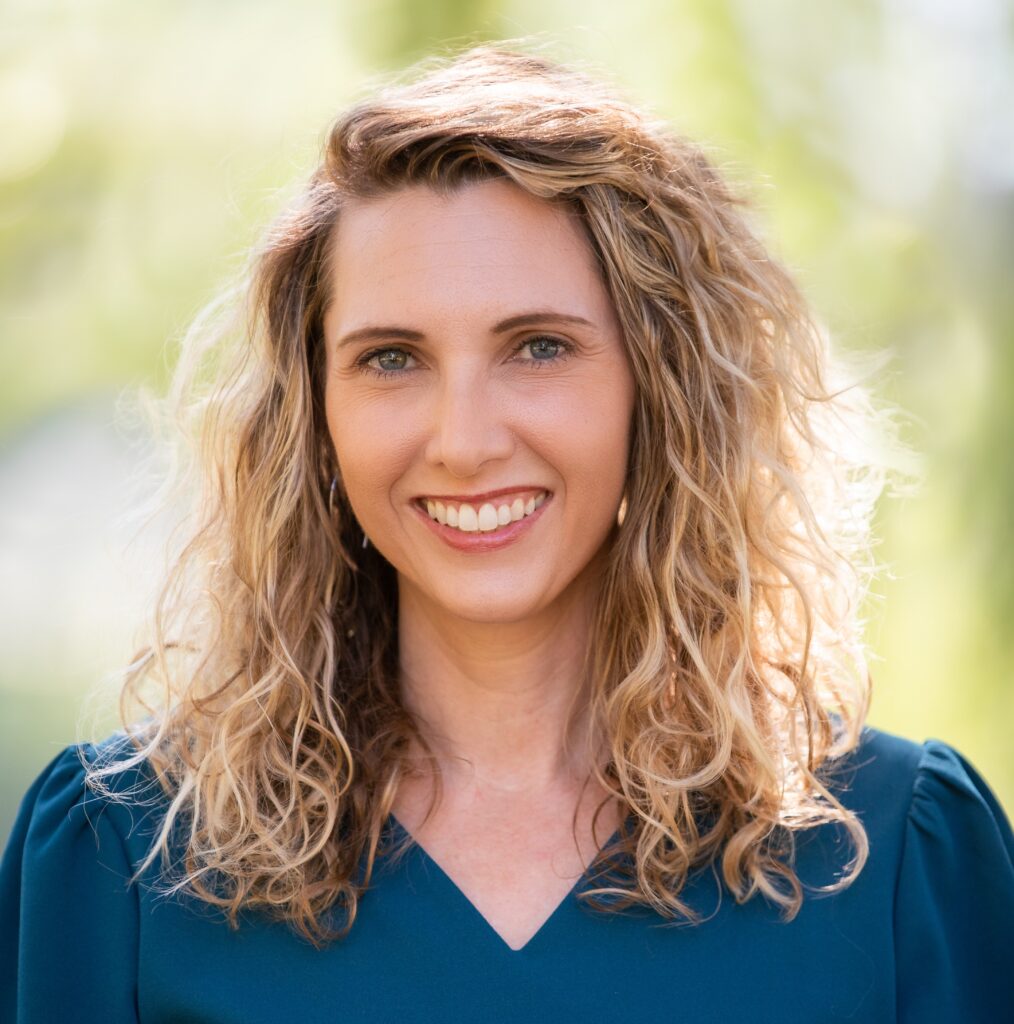Regular readers here need no introduction to the incredible Caroline Kline, a co-founder of the Exponent blog whose insight we’ve long benefited from. What readers may not know is that Caroline recently published a new book, Mormon Women at the Crossroads: Global Narratives and the Power of Connectedness. This book grew out of her dissertation at Claremont Graduate University where she earned a Ph.D. in Religion, focusing on contemporary Mormon women and Mormonism in the Global South. For her research, Caroline conducted interviews with Latter-day Saint women in Mexico, Botswana, and the United States, looking at how these women talked about their lives and how gender roles and gender role inequality intersected with their ideas of race, religion, class, and culture. I was so excited to sit down with Caroline over Zoom and talk to her about her book.
Katie: The interviews you conducted were part of the Mormon Women’s Oral History Project at Claremont Graduate University. Tell us a little about that project. Why do oral histories instead of other methods of gathering personal histories?
Caroline: Why oral history? Well, it is a way to gather documents and archive voices and experiences and wisdom of people that might not make it into traditional archives and collections. So women, working-class people, people of color, and so on. It has this kind of liberatory potential in that it treats seriously voices of sometimes marginalized communities. And so for that reason, I love it as a method. And it’s a method that is particularly appropriate for people wanting to study contemporary Mormon women in the 20th and 21st centuries. There hasn’t been a lot of academic study of this population, and there aren’t a lot of archives documenting their lives. This project was meant to serve as a repository of perspectives and experiences of LDS contemporary women. And so I really do think as time rolls on, the Mormon Women’s Oral History Project is going to be a very important collection for historians.
Katie: What questions were you seeking to answer with your interviews and kind of what assumptions did you start with based on your own experiences as a white Mormon feminist?
Caroline: I was interested in issues of gender and how they played out in various global locations. I was interested in how issues of gender intersected with issues of race or culture and how women agentively navigated their identities as LDS women, but also as women of these various cultures. I was interested in what attracted them to Mormonism and how they adapted the faith to their own contexts and also what the sources of tension were with Mormonism. I was interested in their moral imperatives, like what were the values guiding their lives? So there were all sorts of things that were guiding my inquiry.
And at the point I constructed this project, I was familiar with feminist research methodology, which encouraged me to carefully examine my own positionality as a white American, middle-class, privileged woman and how that positionality was building things into the project. I knew that it was dicey for me as a white American woman to go to these global locations and talk to them just because of the power differential and my positionality. And I was on some level very committed to trying to hear what they told me about the truth of their lives and to let their priorities guide my inquiry. However, even with this knowledge, my own positionality totally affected the questions I ultimately asked. I did have some very broad questions about challenges and difficult decisions and hopes and aspirations and regrets, so they could take the questions wherever they wanted, but I was interested in gender. And so I definitely built that into the project and that’s a priority that was not necessarily their priority.

Katie: You talk about a question you included in your interviews with the women in Mexico that you felt didn’t work well. How did you know the question was off? And how did that change your approach going forward?
Caroline: Yes, in the middle of the interview after I asked about their lives, I would then go into a section on gender and Mormonism or women’s issues and Mormonism. And one of the big questions that I asked was, “Do you think that women are equal to men in the Mormon Church?” Something along those lines. And often, the response was something of a furrowed brow and kind of a confused look. And I could tell this made them uncomfortable. I couldn’t quite figure out why it made them uncomfortable. It took many, many interviews before I think I figured out why they didn’t like this question. And it was because it made them suspect that I was viewing their lives through a lens that was not their lens, that I was focusing on things that were not their priorities, and they were right. I was! Gender equality was my lens! And so that question really kind of tipped them off that my priorities were not their priorities. Now, did I change my question? Not necessarily. I think maybe towards the end, I did leave it off sometimes. But I also sometimes just kept asking it, and I felt bad that it made them uncomfortable, but I still was interested to see how they reacted to this question and what they had to say. And generally the response was kind of a quick, “Yeah, yeah, I think they’re equal.”
Katie: Through your research you developed a framework to discuss the guiding values you saw for many of these women—you call it a paradigm of “non-oppressive connectedness.” What does that mean in simple terms, and how does that paradigm differ from the framework that many white, Western feminists work from?
Caroline: As I’ve just mentioned, I came to realize that that lens of gender equality, which is my lens and the lens of maybe some white Western feminists, was not the lens through which they viewed the church and the world and their decision making. But after looking over their whole interviews, and especially that section on their life story, their childhood, and their marriages, I came to realize that they had a different lens, a different moral priority, guiding so many of their decisions. And what it was is something that I’m calling “non-oppressive connectedness,” and this is a moral orientation where relationships are prioritized, but not just any relationship. It’s relationships that are vitalizing, that are healthy, that are positive. And it’s relationships with God, with ward, with spouse, with community—like it could be a relationship with pretty much anyone or anything. But it had to be that type of relationship. It wasn’t an abusive relationship. It wasn’t an oppressive relationship. It was a good positive connectedness with other people. And so that’s when I realized that that value is what drove a lot of their decision making. Gender inequality was not the primary evil for these women. What was the primary evil, using this lens? Abuse, alienation, oppression—all things that kill positive relationality, healthy connectedness.
And when I realized that that was the moral priority, it started to make sense to me why the church worked well for some women in Mexico and in Botswana and some women of color in the United States. And this is because it could very often help them to develop and cultivate that kind of connectedness. A church that encourages husbands to be sober and to be productive and good positive influences in the family and to not cheat on their wives and not hit their wives. This is liberation for many women, right? This is fantastic. This is positive connectedness. A community that asks them to develop themselves and share their talents, like in a ward, for instance—this could be very liberating. And so when the church could foster positive connectedness, non-oppressive connectedness, this is when the church could work very well for many women. And what I ultimately realized was that this was a more fruitful and fairer lens through which to look at these women’s lives, rather than a lens of gender equality or even racial equality, which didn’t always factor in as much, especially in the interviews with global women.
Katie: Tell us a little bit about your trip to Botswana. What are some of the cultural clashes you learned about with how the American-based LDS church integrated with Botswanan culture? And how did ideas of non-oppressive connectedness show up in the stories of the women in Botswana?
Caroline: Yes, so one thing that came out with the women in Botswana is that in Botswana, there is an expectation for all women, whether or not you’re married, to have children. Marriage usually actually comes far later after children. Usually a couple will cohabitate, have a few children together, and then years and years later get married. And this is partly because it takes a long time to accrue the kind of wealth you would need to host a wedding and to get enough for the bridewealth. So that’s just the way it is. And women who don’t have children are kind of . . . they’re almost not considered full adults. So what I discovered in talking to women in Botswana is that it is tough being single, and not having children is a huge strain. And women had to navigate this cultural expectation that you cohabitate with your boyfriend and you have your babies, alongside Mormon sexual morality, which is so focused on marriage. With Mormon sexual norms, marriage comes first and then children. Women have to navigate this, and it was tough. Women often had to make some very difficult decisions. I talked to a couple of women that really jeopardized their relationships with long-term boyfriends because they joined the church and wanted to follow Mormon sexual morality. So single women navigating that—that was a rough thing they were encountering.
Secondly—and this hits on non-oppressive connectedness—the connection between mothers and children is very valued, and to not have that is a very hard thing in their lives. What sometimes happens is that LDS women who are not married get pregnant. And there was a really fascinating anecdote where a bishop came into a Relief Society in the early 2000s and told the women that the First Presidency had directed that women who get pregnant out of wedlock should give their babies up for adoption. And the women as a whole just rose up and shouted “No!” and drove him out mid message because adoption is not within the culture. You don’t give up your babies in Botswana—there’s no cultural framework for this. There’s also in Botswana a very high expectation of extended family helping single women out who have children—cousins, siblings, grandmas—they have a very expansive kinship network, and all come together and help women raise their children. So adoption just did not work. When women heard this, it was this utter moment of ethical and cultural clash.
Katie: What are some of the themes that emerged in your interviews with women of color in the United States?
Caroline: With the women in the United States, a lot of women articulated the issue of privilege in the church. I talked to a woman from Cape Verde who was an undocumented immigrant for a while until she married here. She talked about stay-at-home mom rhetoric and how on the one hand, she gets it—life would be a lot easier if she could be a stay-at-home mom, but as an immigrant, and her husband is an immigrant too, they don’t have a backup. They don’t have parents waiting in the wings to help them if they lose their jobs. She doesn’t have anyone waiting to help her if her marriage goes down and she’s left with trying to support herself and the kids. So she has to be her own backup. There’s no one there to help her. So this discourse, the stay-at-home mom cultural ideal—which I think is still present even though it’s luckily kind of dissipating to some degree, but I think there’s still a cultural ideal in American Mormonism about stay-at-home moms—she could definitely point to that as a position of privilege. As she said, “You can be a stay-at-home mom when you’ve got people waiting to help you out if something goes wrong, but I’m not in that position.” So she was really good at articulating the issue of privilege.
Katie: what are some things that LDS church leaders can take away from reading your book?
Caroline: If LDS church leaders decided to privilege the voices of global women of color, they would pay much more attention to domestic violence. Domestic violence was everywhere in these interviews, and it’s everywhere in society. It’s in every racial group, it’s in every culture, it’s in every socio-economic class. It’s everywhere. And these women’s lives bore that out. It is everywhere, and it is something so many women are dealing with. So I think that they would hear that domestic violence needs a lot more attention. They could possibly come up with some ideas and ways to support survivors of domestic violence, and even perpetrators of domestic violence, similar to the Church’s addiction recovery groups. So more attention to this problem, and repeated talks, and repeated emphasis on how utterly unacceptable this is could and should be articulated more.
I also think that if they listen to women’s voices from around the world, maybe some theological discourses might change. Women, especially in the Global South, in Mexico, in particular, shared wonderful charismatic, visionary experiences. Like dreams, dreams that connected them to dead ancestors, to grandmothers, to mothers who had passed away. These were common and this kind of visionary experience, one that I don’t have a lot of experience with personally and I don’t hear a lot about in my Southern California ward, these experiences were very spiritual. So I think that there might be more of an infusion of that kind of appreciation for these charismatic, visionary experiences into our discourses.
And this is something that I really love about womanist ethics*, which I talked about in the book a bit. What are our sources of authority on how to lead a moral life? Womanist ethicists and womanist theologians say, “Look to your grandmothers, look to the women who came before you, look particularly to the Black women in the community or to the women of color. Look to the women who came before, and look at their focuses, look at their dreams, look at what they said, look at the stories they told. And that’s where you’re going to find a way forward.” And I think that is so inspiring. Where are we going to find our authority as Mormon feminists or Mormon womanists? Let’s look to the women around the world and let’s look at their personal experiences and their wisdom. And so this is something that I think drives this project—I want to document their wisdom because I think that they should help lead the way.
*Womanism is a kind of feminism developed originally by Black women. It focuses on the uplift of the entire community, male and female, as well as all sorts of oppressions–gender, racial, class, etc.







8 Responses
Thank you for doing this interview! I’m excited to read the book now
This is a mind opening concept to realize that fundamental concerns we have as a culture conflict with the concerns and focuses of people in other cultures. For Mormonism to genuinely spread through the world, the focus needs to be on difficulties that are common to all cultures. Otherwise we are simply teaching culture instead of spirituality.
Great interview. And I agree that women can and must look to women’s wisdom and experiences for genuine spiritual uplift, example, and authority. In the church, we need to stop allowing male leaders to intervene, interrupt, and assume authority. That authority from God that they assume they have doesn’t hold up historically. We can do better for women and for men.
Thank you for this! I’m about halfway through the book at this point, and it’s fantastic and eye opening. This interview does a great job at capturing key points. I felt like it’s given me a lot to think about – both for ways that things could be done better across the Church to interact with the cultures of people around the world, but also the ways in which being a part of the Church does good things for people’s lives (something that is all too easy for me to do sometimes).
I meant forget, not do in that last line.
These are such great examples of how even things we don’t think of as being “church culture” impact people in deep ways when it butts against cultures that are not mainstream conservative US culture. As a global church we need to recognize the his better and provide greater space for all of our brothers and sisters to share their spirituality and religion together in sage spaces.
Thank you for the wonderful interview, Katie! It was a pleasure to speak with you.
[…] do you do when a game-changing book comes along? You interview the author and talk about its themes with your blogging friends. Also, you host a book giveaway because you […]